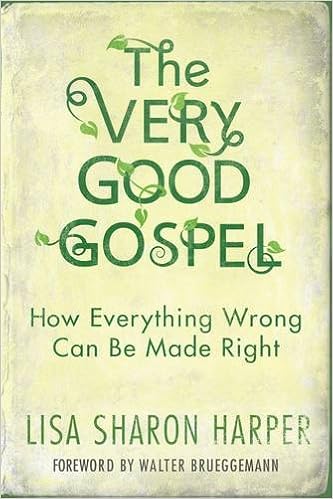
The
Very Good Gospel by Lisa Sharon Harper
What we need in this world is a vision that reaches down
to the nitty gritty of broken relationships and brings healing, hope, and
dignity. Lisa Sharon Harper, chief
church engagement office at Sojourners (Jim Wallis) has written a hard hitting
and challenging book on the gospel and the way shalom enters our lives and the
lives of those around us. Her experience
with racial issues, injustice, and systemic brokenness gives her a trustworthy voice
in the way believers can bring healing to our world.
What makes this book a real game changer for believers
and those interested in changing culture?
One, the gospel that Lisa promotes is one that is interested in the
impoverished, oppressed, and broken, not only those who are broken by their own
sin. The good news is not good news to
all if it is not reaching these groups of people. Second, Lisa centers her discussion of the
gospel around the concept of shalom, “for the emphatic goodness of all
relationships (15).” This book looks at
God’s vision for all of creation, which includes a restored relationship
between humans and God, but also how the interconnectedness of human
relationships can be made whole again.
In her chapter on Shalom and Self, Lisa draws on the
work of Dr. Brene Brown to bring out some truths about shame, vulnerability,
and shalom. Lisa writes, “Shalom says we
are all connected. Every relationship
created by God is strung together in a web of intimate relationships. To affect one is to affect all. So when our distrust of God leads us to
separate ourselves from God, we also are separated from ourselves (73).” Self-doubt, destructive behavior, and shame
produce an amazing amount of unhealthy choices.
The reverse is also true, when we trust God, we give ourselves
opportunities to be vulnerable and are at peace with ourselves and others.
On the chapter on Shalom between Genders, Lisa offers
some suggestions about how to go about healing the divide between genders and
also our prejudices. She states that listening
to the stories of women, lamenting the way the church and world has treated
them, and engaging in confession and repentance are a few ways to start on the
right track.
Thanks to Blogging for Books for the copy of this book
in exchange for an honest review.
Comments
Post a Comment